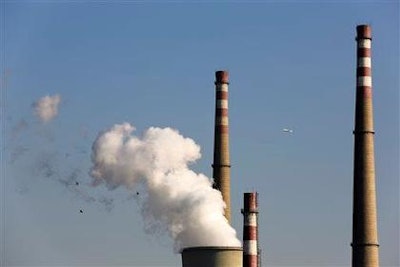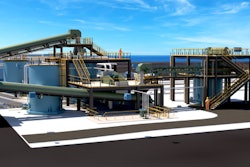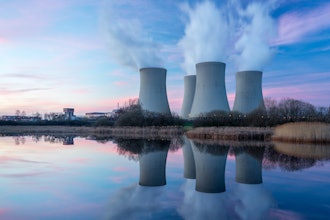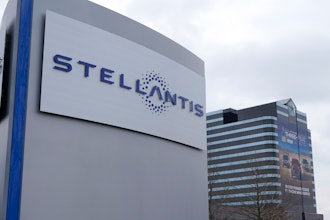
 Americans have been warming to the idea of climate change in recent years — a majority now believe that global warming is real. But drawn along party lines, the picture still looks starkly divided. According to a recent Pew Research Center poll: “About nine-in-ten Solid Liberals (91 percent) said the Earth is getting warmer, but just two-in-ten Steadfast Conservatives (21 percent) agreed.”
Americans have been warming to the idea of climate change in recent years — a majority now believe that global warming is real. But drawn along party lines, the picture still looks starkly divided. According to a recent Pew Research Center poll: “About nine-in-ten Solid Liberals (91 percent) said the Earth is getting warmer, but just two-in-ten Steadfast Conservatives (21 percent) agreed.”
Despite all the head-butting, some of the world’s top chemical companies have not only called climate change “man made,” they’re leading the charge to combat it.
Here’s a look at which companies have big plans to fight climate change, who still denies it, and how chemicals companies play a unique role in the debate.
Petitioning World Leaders
Recently, the bosses from 43 big-time companies — representing $1.2 trillion in sales — signed an open letter urging world leaders to create concrete solutions to climate change issues.
Signed by the CEOs of companies such as Dow Chemical, AkzoNobel, DONG Energy, Royal Phillips, Sinar Mas Agribusiness and Food, IKEA and others, the letter doesn’t mince words about where the companies stand: “We will act as ambassadors for climate action, focusing on solutions … and using ‘the science debate is over: climate change is real and addressable’ as one of the common themes to raise public awareness,” it says.
Merging Sustainability With Business
As part of its 2015 Sustainability Goals, Dow Chemical named “addressing climate change” as one of its chief aims. A decade later, Dow hasn’t wavered. In its recently published 2025 Sustainability Goals, Dow says it plans to grow over the next 10 years without allowing its greenhouse gas emissions to exceed its 2006 baseline. The comprehensive goals also aim to reduce the company’s environmental footprint in other ways too, including lowering emissions of VOCs and NOx, along with reducing fresh water waste.
Dow is also a big investor in alternative sources of energy: Recently, it announced that it’s developing a massive 35,000 acre wind farm to power its Freeport Texas manufacturing plant.
Other companies including DuPont, Eastman Chemical Company and BASF have also wrapped sustainability goals into their business model. In BASF’s multi-faceted “climate protection” strategy, the company has set goals to reduce its emissions, while partnering with other companies to make innovative products that provide energy efficiency boosting technologies.
Who’s Sayin’ it Ain’t So
Of course, that doesn’t mean there aren’t major naysayers in the bunch. Most conspicuously is Koch Industries, a company accused of pumping millions of contributions into groups and scientists who deny climate change. And with Republican candidates prettying themselves up in hopes of scoring Kochs’ major campaign contributions that could total hundreds of millions, the Kochs’ clout and opinions matter.
(Although it’s worth noting that even billionaire Charles Koch budged slightly on the climate issue in a recent interview, saying that it could be “plausible” that Co2 emissions were warming the planet — though he didn’t believe the consequences would be catastrophic.)
Never Mind That Gas Guzzler Behind The Curtain
For the companies that are trying to position themselves as environmentally minded do-gooders, it’s difficult to ignore one contradictory fact: Chemical facilities are major gobblers of fossil fuels (the biggest piece of the greenhouse gas pie).
With a shale boom making fossil fuels all the more attractive as a feedstock and source of energy, it puts chemical companies in a paradoxical position where they are preaching sustainability with the one hand and polluting with the other.
Is there any way to escape this trap?
One chemical industry blogger recently suggested creating closer ties between academia, government and industry to accelerate innovations that will boost sustainability.
Keeping investments in biofuels and biochemicals — like BASF and DuPont do — is another way for companies to keep their eye on the bigger prize of anticipating long-term changes in the oil market and in the planet.
Because with their ability to produce innovative materials and methods, chemical companies have the unique opportunity to be less of the climate-change problem and more of the solution.






















